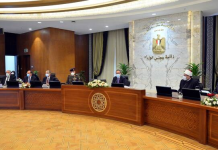A small but ambitious company in the West Bank is benefiting from a surge in demand for local alternatives to internationally recognised brands.
Chat Cola, produced in a factory located in the town of Salfit, has become a symbol of Palestinian self-reliance as many Palestinians turn away from foreign products, particularly those linked to Israel or the United States.
The demand for Chat Cola, whose red and white aluminium cans closely resemble Coca-Cola’s, has skyrocketed since the war erupted in October 2023. According to the company’s owner, Fahed Arar, the increase in sales is largely due to the ongoing boycott movement against Israeli and American products. “The demand for Chat Cola increased since the war began because of the boycott,” Arar told AFP from his factory in Salfit.
Local consumers, like Ramallah restaurateur Julien, have made the switch to Chat Cola, with many now stocking the Palestinian-made soda in place of more famous brands. Supermarket manager Mahmud Sidr also noted a marked rise in the sales of Palestinian products over the past year, particularly those perceived as “supporting Palestine.”
The global boycott of Coca-Cola has been fuelled by its association with the United States, which continues to provide significant military aid to Israel. While Coca-Cola has stated that it does not support any political causes, the perception among many Palestinians is that the brand, along with other American products, indirectly supports Israel.
Despite this, the Palestinian Coca-Cola bottling company, the National Beverage Company, has not seen a major drop in the availability of its products in local stores. However, sales to foreign-named chains have plummeted by up to 80%, according to an anonymous source within the company.
The rise in Coca-Cola’s popularity highlights a growing desire among Palestinians to support local businesses and reduce reliance on Israeli goods, though challenges remain. Palestinian economist Raja Khalidi pointed out that while there is a clear desire for Palestinian-made alternatives, the lack of production capacity has hindered the full potential of the boycott. “There’s a willingness to boycott if Palestinian producers can match the quality and price of international brands,” Khalidi said.
Chat Cola is one of the few Palestinian companies that has successfully met this demand. Arar is proud of his product, which he describes as having “Palestinian taste.” However, challenges remain for the company. Israeli authorities have reportedly blocked shipments of raw materials, significantly hampering production. As a result, the factory is only able to meet 10 to 15 percent of the demand for Chat Cola.
Despite the obstacles, Arar remains optimistic, citing the political and consumer shift in favour of local products as a significant opportunity. He plans to expand his business beyond the West Bank, with a new factory slated to open in Jordan to meet growing demand in the Arab world.
The broader boycott movement, particularly in neighbouring Arab states, has also had notable successes. In Jordan, calls for a boycott led to the closure of Carrefour stores operated by the Majid Al Futtaim Group, further signalling the growing regional solidarity with Palestinian efforts.
For now, Chat Cola stands as a testament to the resilience of Palestinian entrepreneurship in the face of ongoing conflict, reflecting a larger desire for independence and self-sufficiency in the region. As the war in Gaza continues, the demand for products like Chat Cola, which embody Palestinian pride and defiance, is expected to keep rising.

















